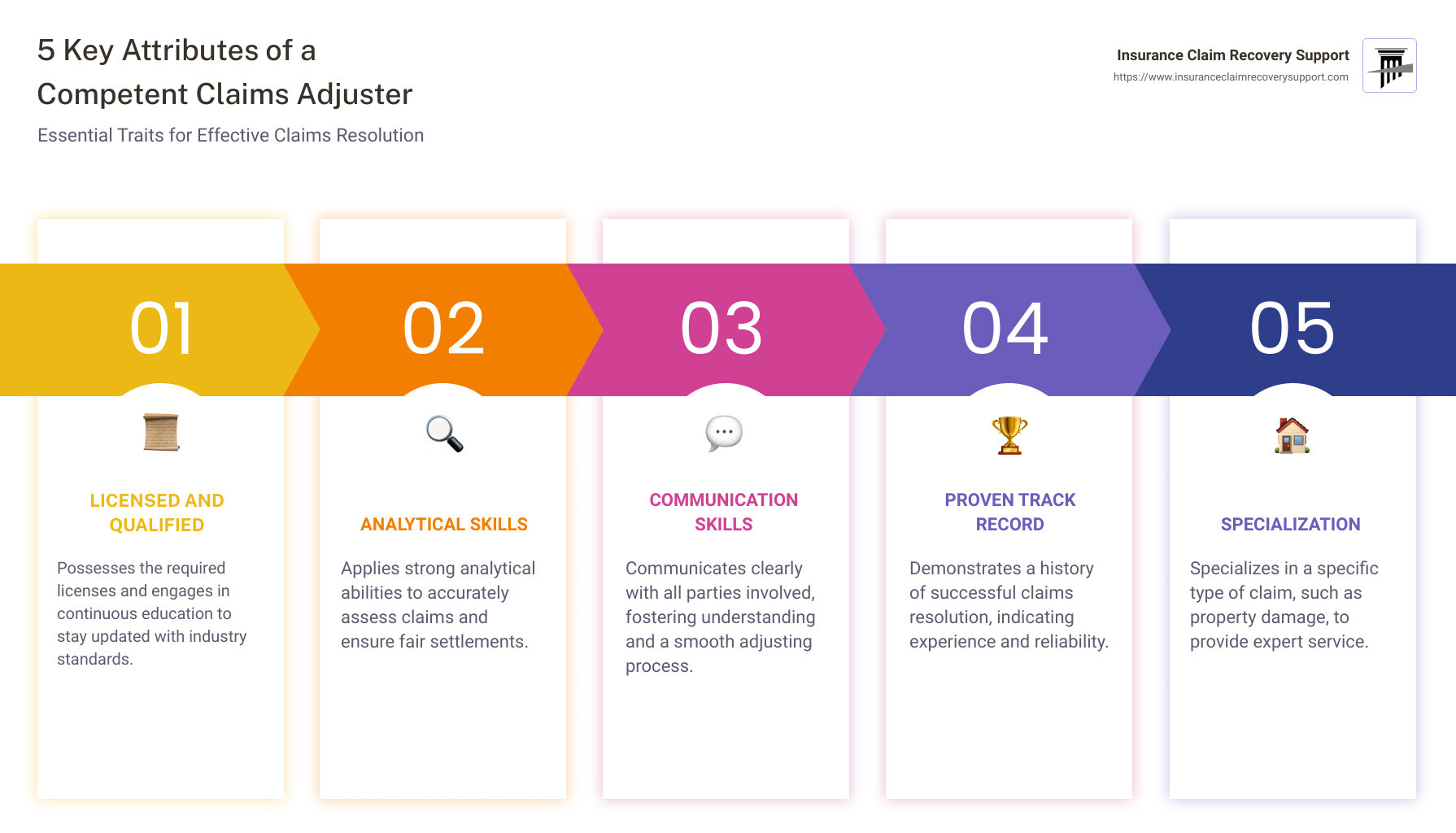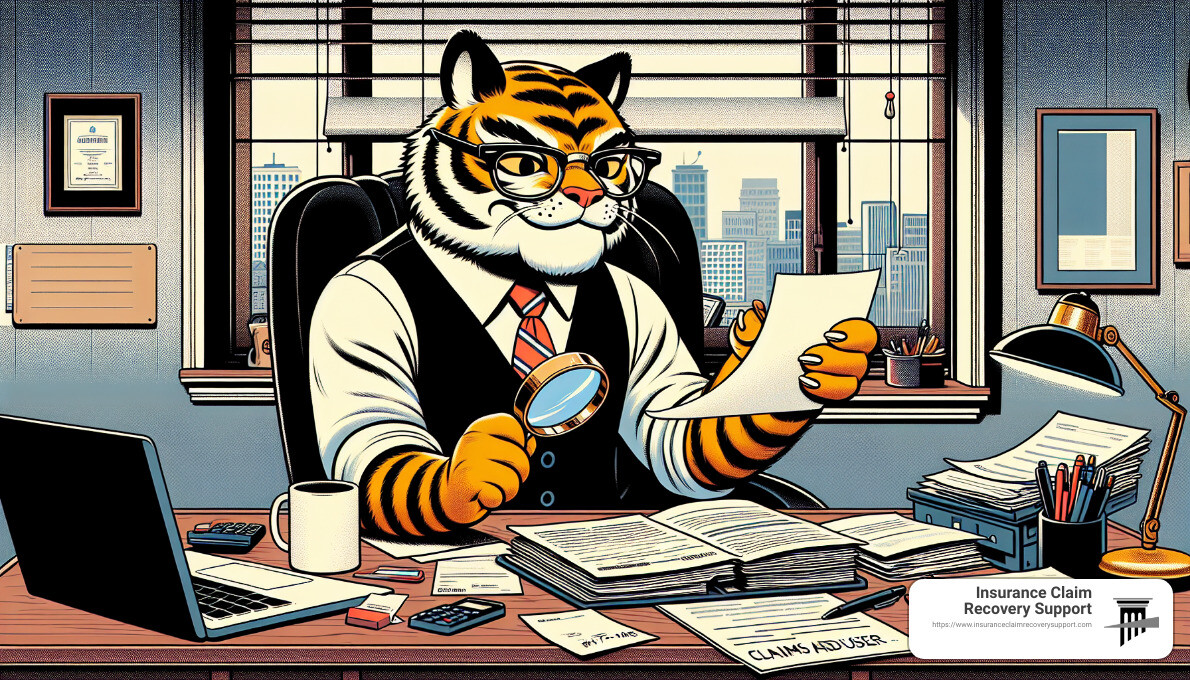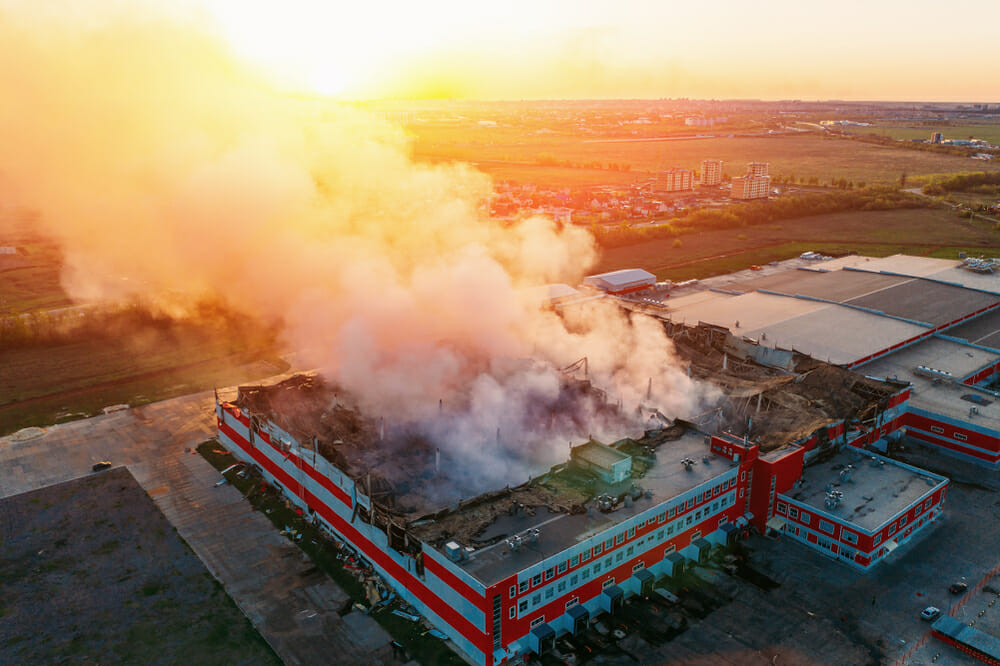Have you recently experienced property damage due to a disaster and feel overwhelmed by the complex insurance claim process? Claims adjusters play a pivotal role in this process, diligently investigating insurance claims to determine the extent of an insurance company’s liability. Whether it’s property damage to structures or business interruption, claims adjusters shoulder the responsibility of ensuring fair settlements.
However, not all claims adjusters are created equal. In the intricate world of insurance claims, understanding the nuances of their roles is vital as they conduct investigations, assess losses, and negotiate settlements. Their role in this process is critical in determining the outcome of your insurance claim. But how do you identify the right adjuster for your situation?
This article seeks to help commercial, multifamily, or apartment property owners like you, who have experienced property damage, navigate the sometimes murky waters of hiring a public adjuster.
In line with this, let’s glimpse an overview of what to anticipate in the subsequent sections:
- Different types of claims adjusters and their unique roles
- The significance of licensing and qualification in assessing their expertise
- How crucial analytical skills are in optimizing claims adjusting
- The essential role of clear communication in the adjusting process
- The benefits of hiring a public adjuster with a proven track record
…and the list goes on.

The licesned public adjusters, at Insurance Claim Recovery Support, bring immense experience and expertise to table in serving as the policyholder’s advocate. We handle the intricate aspects of your claim, ensuring all policy conditions and requirements are met, and prevent the risk of claim denial or underpayment. We always aim for the most favorable settlement possible.
Stay with us as we explore the “10 Commandments of Hiring Public Adjusters.” As a policyholder, this guide could be the difference between a stressful claims process and an efficiently managed case, equipping you to focus on what’s most important – getting your business back on track.
Commandment 1: Know the Different Types of Claims Adjusters
Before you embark on the process of hiring a claims adjuster, the first commandment is to understand the different types of adjusters available. Each type of adjuster plays a unique role in the insurance claims process and serves different interests.
Understanding Public Adjusters
Public adjusters work directly on behalf of policyholders like you. They help businesses or individuals file insurance claims when a proposed settlement seems unfit from an insurer. Essentially, a public adjuster is your advocate, using their expertise to evaluate and document your damages, and negotiate settlements with your insurance company on your behalf. They aim to secure the highest possible amount and ensure the claim process is smooth, fair, and prompt. At Insurance Claim Recovery Support, we work diligently to protect your interests and ensure you get every dollar you’re entitled to.
Understanding Independent Adjusters
Independent adjusters, on the other hand, work as contractors for multiple insurance firms or third-party administrators. They often handle catastrophe claims, traveling to impacted areas after major weather events or emergencies. Although they work to find a fair settlement price, they primarily serve the interests of the insurance company.
Understanding Staff Adjusters
Staff adjusters are employees of an insurance company. They work full-time for one insurance company exclusively, responding to claims for their employer. Their ultimate responsibility is to protect the financial interests of the insurance company while assessing and determining the value of your claim.
In summary, it’s crucial to know the type of adjuster you’re dealing with as their goals can significantly influence the outcome of your claim. As policyholders, working with a public adjuster allows you to have an expert in your corner, fighting for your interests and ensuring you receive a fair settlement.
Commandment 2: Ensure the Adjuster is Licensed and Qualified
After understanding the types of claims adjusters, the next step is to ensure that your chosen adjuster is licensed and qualified. This is a crucial step as unlicensed or unqualified adjusters may not have the necessary knowledge and skills to handle your claim effectively.
Licensing Requirements for Claims Adjusters
To become a claims adjuster, an individual must be at least 18 years old, a resident of the state where they plan to work, and meet certain educational requirements (source)(https://www.insuranceclaimrecoverysupport.com/claims-adjuster-training-schools/). These requirements differ from state to state. For instance, in Alabama, aspiring adjusters need to complete the required Alabama Adjuster Pre-licensing Course, pass the AL Adjuster Exam, submit fingerprints, and complete the Alabama Insurance Adjuster License application with the applicable fees.
On the other hand, in states like Texas, they must pass an exam before applying, submit fingerprints, and apply online using Sircon with an application fee of $50. In California, prospective adjusters must pass the state exam, complete a background check, submit an application to the Department of Insurance, and execute a California surety bond in the penal sum of $2,000.
The process of becoming a licensed claims adjuster may seem daunting, but there are claims adjuster training schools that provide comprehensive understanding of insurance policies, regulations, and claim handling procedures, making the journey easier.
Before hiring a claims adjuster, it’s crucial to verify their license with your state’s department of insurance. This ensures that the adjuster is authorized to handle claims in your state and adheres to its regulations and standards.
The Importance of Continuing Education for Claims Adjusters
In addition to initial licensing, many states require claims adjusters to complete a certain number of continuing education hours to maintain their licenses. This is because the insurance industry is constantly evolving with new regulations, practices, and trends. Continuing education ensures that adjusters stay up-to-date with these changes and are equipped to provide the best service to their clients.
At Insurance Claim Recovery Support, we believe in the importance of continuous learning. We encourage our public adjusters to regularly attend relevant courses and programs to stay abreast of the latest industry trends and regulations. This commitment to ongoing education allows us to provide the highest level of service to our clients, ensuring they receive the fair and prompt settlement they deserve.
In conclusion, when hiring a public adjuster, it’s crucial to ensure they are not only licensed but also dedicated to continuing education. This commitment to professionalism and knowledge ensures they are equipped to handle your claim effectively and maximize your settlement.
Commandment 3: Look for an Adjuster with Strong Analytical Skills
Following on from ensuring a public adjuster is licensed and well-trained, the third commandment in hiring claims adjusters is looking for an adjuster with strong analytical skills. These skills are crucial in the complex process of evaluating and negotiating insurance claims.
The Role of Analytical Skills in Claims Adjusting
Claims adjusters often need to handle a multitude of tasks that require a keen eye for detail and the ability to analyze complex information. For instance, they must inspect property damage, review police reports, and speak to witnesses. Furthermore, they are tasked with interpreting complicated insurance policy language and determining the insurer’s liability based on the gathered evidence.
This role requires an in-depth understanding of the policy terms, conditions, and exclusions, and the ability to apply this knowledge to the unique circumstances of each claim. Additionally, they must be able to accurately calculate the cost of damage or loss, which involves understanding construction, repair costs, and the potential impact of depreciation and local market conditions.
How Analytical Skills Benefit Policyholders
When your claims adjuster possesses strong analytical skills, it translates into a thorough, accurate, and fair assessment of your claim. A detailed investigation can uncover essential details that could significantly impact the outcome of your claim.
For example, if a tree falls on your property, causing damage, an adjuster with strong analytical skills will not only assess the visible damage but will also consider potential hidden damage, the impact on the property’s overall value, and the cost of clearing the tree and repairing the property.
Moreover, an analytically skilled adjuster can effectively review and respond to carrier correspondence, addressing any omissions, misrepresentations, wrongful denials, or violations of policy and insurance code statutes. This can be crucial in ensuring that your claim is handled fairly and that you receive the settlement you are entitled to.
At Insurance Claim Recovery Support, our adjusters are equipped with the necessary analytical skills to meticulously document every aspect of a claim and negotiate effectively. We ensure that the interests of our policyholders are prioritized, especially when dealing with insurance companies where the adjuster’s analytical skills can significantly influence the potential payout of an insurance claim.
In conclusion, strong analytical skills are a must-have for claims adjusters. When hiring an adjuster, ensure they possess these skills to guarantee a thorough and fair processing of your claim. This will ultimately lead to a fair and prompt settlement, giving you peace of mind in a stressful situation.
In the next section, we will discuss the importance of communication skills in claims adjusting and how these skills can benefit you as a policyholder.
Commandment 4: Prioritize Communication Skills
Public adjusters are the intermediaries between policyholders and insurance companies. They play a crucial role in explaining complex insurance claims procedures, interpreting policy terms, and negotiating claim settlements. Therefore, it is paramount to prioritize communication skills when hiring a claims adjuster.
The Importance of Clear Communication in Claims Adjusting
Public adjusters with exceptional communication skills can effectively convey information, ensuring that all parties involved have a clear understanding of the claim process. This is particularly important when it comes to interpreting insurance policies, which are often filled with industry jargon and complex terms. A claims adjuster who can translate these terms into understandable language can avoid misunderstandings, speeding up the claims process.
Moreover, when it comes to negotiating claim settlements, being able to articulate points effectively and persuasively is a valuable asset. The role of a public adjuster is to advocate for the policyholder, optimizing the recovery to ensure they receive what they are entitled to within their policy in a timely fashion according to the state insurance codes. This requires being able to communicate effectively with insurance company representatives, who may have disputing views on the claim value.
How Good Communication Skills Benefit Policyholders
As a policyholder, you will benefit greatly from hiring a public adjuster with excellent communication skills. Firstly, they will keep you informed about the progress of your claim, explaining each step of the process in a clear and concise manner. This can alleviate much of the stress and uncertainty that comes with filing a claim.
Furthermore, a public adjuster with strong communication skills will make sure your voice is heard. They will listen to your concerns, understand your needs, and advocate on your behalf, ensuring you receive the maximum payout possible. As mentioned in a Reddit post, hiring an independent appraiser can help you get a better settlement from the insurance company, but this requires effective negotiation skills.
At Insurance Claim Recovery Support, we prioritize clear communication with our clients. Our public adjusters are trained to communicate effectively, ensuring a smooth claim process and optimal settlements. In the next section, we’ll discuss the importance of hiring a public adjuster with a proven track record.
Commandment 5: Seek a Public Adjuster with a Proven Track Record
Experience is the lifeblood of any profession, and claims adjusting is no exception. As you consider hiring a public adjuster, it’s crucial to look beyond their credentials to their track record.
The Importance of Experience in Claims Adjusting
Claims adjusting is a complex task that involves understanding insurance policies, assessing damages, and negotiating settlements. It’s not something one can master overnight. It requires years of experience and a deep understanding of the insurance industry, from policy interpretation to negotiation tactics.
A public adjuster with a proven track record has likely encountered a variety of claim scenarios, from simple property damage to complex cases involving multiple parties and large sums of money. They have the expertise to navigate these situations and to ensure that the policyholder receives a fair and appropriate payout.
Our public adjusters at Insurance Claim Recovery Support have a wealth of experience dealing with a wide array of claims, which has equipped them with the necessary skills to handle even the most complex cases.
How a Proven Track Record Benefits Policyholders
When hiring a public adjuster, their experience can directly impact the outcome of your claim. Here’s how:
1. Speedy resolution: Experienced adjusters have honed their skills over the years, enabling them to handle claims more efficiently. This means your claim will be processed and resolved quicker.
2. Accurate damage assessment: With their vast experience, seasoned adjusters can accurately assess the extent of damage, ensuring you receive a fair settlement.
3. Effective negotiation: An adjuster with a proven track record has likely honed their negotiation skills, which can be instrumental in securing a favorable settlement.
4. Knowledge of insurance policies and regulations: An experienced adjuster is well-versed in the intricacies of insurance policies and state regulations, helping you avoid potential pitfalls in the claims process.
5. Confidence and peace of mind: Knowing that your claim is in the hands of an experienced professional can alleviate stress and give you peace of mind throughout the process.
In conclusion, the value of a good public adjuster’s experience cannot be overstated. Be sure to take the time to review a public adjuster’s track record before making a hiring decision. The goal is not just to settle your claim, but to maximize your settlement as quickly as possible. At Insurance Claim Recovery Support, our experienced adjusters are committed to achieving the best possible outcome for our clients. In the next section, we’ll discuss the importance of understanding your adjuster’s fee structure.
Commandment 6: Understand the Public Adjuster’s Fee Structure
When hiring a public adjuster, it’s crucial to understand their fee structure. This will ensure transparency and allow you to budget accordingly. The last thing you want is to be caught off guard by unexpected costs.
Common Fee Structures for Public Adjusters
Public adjusters typically work for a fee, which is often a percentage of the claim settlement. In many states, public adjusters operate on a contingency fee basis, which means their payment is a percentage of the claim payout. This percentage can vary depending on the complexity of the case and the adjuster’s level of expertise. It’s important to discuss and agree upon the fee structure before signing any contract.
At Insurance Claim Recovery Support, for instance, if you choose to hire us, we work on contingency. Essentially, this means “No recovery, no fee.” This offer ensures that our interests align with yours – we succeed when you succeed.
How to Determine a Fair Fee for Claims Adjusting Services
Determining a fair fee for claims adjusting services depends on several factors. These include the complexity of the claim, the potential settlement amount, and the experience and reputation of the adjuster.
A skilled adjuster can often secure a substantially higher settlement amount, which can more than offset their fee.
While cost is an important factor, it shouldn’t be the only one. The adjuster’s expertise, reputation, and dedication to advocating for you are equally important. Don’t be tempted to go with the cheapest option without considering these other factors.
In conclusion, understanding the fee structure of public adjusters is crucial to ensure transparency and avoid surprises. At Insurance Claim Recovery Support, we maintain transparency in our contracts, ensuring our clients are well-informed about our fees and services. In the next section, we’ll discuss the importance of hiring an adjuster who specializes in property damage claims.
Commandment 7: Ensure the Public Adjuster Specializes in Property Damage Claims
When it comes to hiring a public adjuster, it’s essential to find a specialist who has a deep understanding and extensive experience in handling property damage claims. This level of expertise can make a significant difference in the outcome of your insurance claim.
The Role of Specialization in Claims Adjusting
Specialization in claims adjusting refers to concentrated expertise in a specific type of insurance claim, such as property damage. This involves knowledge of property structures, proficiency in estimating repair costs, and a deep understanding of property insurance policies.
Public adjusters who specialize in large loss property damage claims are skilled in conducting thorough investigations, reviewing associated reports like engineer, hygenist, fire, estimates, interpreting policy language, and inspecting the damaged property. They have the ability to accurately determine the extent of the damage and the costs of repair or replacement, ensuring a more accurate estimation of the insurance company’s liability.
How Specialization in Property Damage Claims Benefits Policyholders
Hiring a public adjuster who specializes in complex, large-loss property damage claims can bring several benefits to policyholders. First, they can provide a more accurate assessment of the damage and the associated costs, which can lead to a more favorable settlement from the insurance company.
Second, they can navigate the complex insurance claim process more efficiently due to their specific knowledge and experience. This can expedite the claims process, leading to a quicker resolution and reimbursement.
Lastly, these specialists have likely dealt with similar cases in the past and, therefore, know how to effectively negotiate with insurance companies, potentially leading to higher payouts for the policyholder. They can also help policyholders avoid common pitfalls such as accepting a lowball offer or agreeing to an inappropriate repair instead of a replacement.
At Insurance Claim Recovery Support, our public adjusters specialize in property damage claims, providing expert assistance to policyholders and ensuring they receive the maximum settlement they are entitled to. In the following section, we will discuss the importance of hiring a public adjuster with local knowledge.

Commandment 8: Look for a Public Adjuster with Ethics
The Importance of Ethical Claims Adjusting
When it comes to settling insurance claims, ethics is crucial. Like any industry, there are good and bad public adjusters. If you are uncomfortable, are not getting direct answers, feel like you’re being pressured or sold, if it sounds like most of a public adjuster’s claims wind up in the hands of an attorney or appraisal, trust your gut and look for another public adjuster
At Insurance Claim Recovery Support, we understand the unique challenges presented by hail damage in Texas cities like Austin, Dallas, Fort Worth, San Antonio, Houston, Lubbock, San Angelo, Waco, Round Rock, Georgetown, and Lakeway. Our adjusters will not hound you or pressure you at all. Once we are hired, are firm but friendly with insurers while also maintaining reasonable requests that hold insurers accountable and we will always keep you in the loop.
In conclusion, integrity, ethics, and credibility are crucial assets for good public adjusters. By considering this aspect when hiring a public adjuster, you can ensure a more accurate, efficient, and fair settlement process.
Commandment 9: Prioritize an Adjuster Who Advocates for Policyholders
The role of a claims adjuster is not just about analyzing and negotiating insurance claims, but also about advocating for the policyholder’s rights. This is where the importance of advocacy comes to the fore.
The Role of Advocacy in Claims Adjusting
Advocacy in the context of claims adjusting means acting in the best interest of the policyholder. An adjuster who is a strong advocate will ensure the policyholder’s rights are upheld and that they receive the full compensation they are entitled to under their insurance policy.
This is particularly important in dealing with complex claims where the interpretation of policy language, the scope of property damage, and the calculation of loss can be contentious. A good advocate will be able to effectively argue for the policyholder’s position, challenge the insurer’s view, and negotiate a fair settlement.
At Insurance Claim Recovery Support, we advocate for our clients in a variety of ways. We assist policyholders in meeting their burden of proof of claimed property damages, expose the insurer’s liabilities and potential violations of the statutory insurance codes, and negotiate a fair and prompt settlement on behalf of our clients.
How Advocacy Benefits Policyholders
When a claims adjuster acts as an advocate, policyholders benefit in several ways. Firstly, they are more likely to get a fair assessment of their claim. The adjuster will work diligently to ensure that all losses are accounted for and correctly valued according to the terms of the insurance policy.
Secondly, policyholders can avoid the stress and frustration of negotiating with the insurance company. An experienced advocate knows how to effectively communicate with insurers, handle objections, and navigate the claims process smoothly.
Lastly, policyholders can have peace of mind knowing that someone is looking out for their best interests. This is particularly important in times of disaster when policyholders are dealing with the emotional toll of property damage.
In conclusion, advocacy is a critical aspect of the role of claims adjusters. By prioritizing an adjuster who advocates for policyholders, you can ensure a more favorable outcome for your insurance claim.
Commandment 10: Prepare for the Claims Adjusting Process
Just hiring a competent public adjuster is not enough; as a policyholder, you also need to be prepared for the claims adjusting process. Understanding what to expect during the claims adjusting process and how to prepare for it can help you navigate the process more smoothly and ensure you get the maximum settlement.
What to Expect During the Claims Adjusting Process
Once an insurance claim is filed, you can expect your public adjuster to take over the process. Regardless of the type of claims adjuster you have hired, their primary role involves doing investigative work to gather information and details about the incident, determining what happened, and finding a fair settlement price (source).
The claims adjuster will gather information such as police reports, witness statements, photos of an incident or property damage, and statements from everyone involved in the incident. They will then evaluate the claim, determine the insurer’s liability, and negotiate settlements, ensuring fair compensation for you (source).
The claims adjusting process can be stressful, especially during difficult times like natural disasters. Your public adjuster may need to communicate and negotiate with someone who recently lost all of their possessions, which can be demanding and difficult.
How to Prepare for the Claims Adjusting Process
To prepare for the claims adjusting process, start by gathering as much evidence as possible related to your property damage. This includes photographs and videos of the damage, eyewitness statements, and any other relevant documentation. The more evidence you have, the harder it will be for the insurance company to dispute your claim (source).
Next, calculate a fair settlement amount, taking into account all relevant past, current, and future economic and non-economic damages. Also, determine your bottom line, which is the minimum amount you’re willing to accept in a settlement. This figure serves as a stability mechanism during negotiations, ensuring you don’t agree to an offer that doesn’t meet your needs.
At Insurance Claim Recovery Support, we understand the importance of thorough preparation and will work with you to ensure you’re ready to navigate the claims adjusting process effectively.
In conclusion, being prepared for the claims adjusting process is key to ensuring a smooth process and a fair settlement. By following these commandments when hiring claims adjusters, you can make sure you have the right support to navigate the complexities of the insurance claims process.
Conclusion
The Importance of Following These Commandments When Hiring a Public Adjuster
We’ve taken you on a journey through the ‘Ten Commandments’ of hiring public adjusters, underlining the crucial importance of each step. These commandments are not mere suggestions; they are a proven roadmap to hiring a skilled and experienced claims adjuster who can ensure your insurance claim is handled accurately, fairly, and efficiently.
Ignoring these guidelines could lead to complications, delays, or even an unfair settlement. The insurance claim process can be intricate and fraught with potential pitfalls. You want a professional who can navigate this terrain confidently, protecting your rights and interests at every turn.
How Hiring the Right Claims Adjuster Can Maximize Your Settlement
The ultimate goal of hiring a public adjuster is to maximize your insurance settlement. An experienced adjuster, like the ones we have at Insurance Claim Recovery Support, can help you achieve that goal by accurately assessing the damage, thoroughly documenting the claim, and skillfully negotiating with the insurance company.
With their in-depth understanding of insurance policies and regulations, they can spot hidden damages, identify coverages that might otherwise be overlooked, and negotiate assertively on your behalf. This not only ensures a fair and full settlement but also saves you the stress and time of dealing with the insurance company directly.
Insurance companies have experts working for them, and so should you. By following these commandments, you can find the right claims adjuster who can become your advocate and guide, ensuring that you receive the maximum settlement to which you are entitled.
As a next step, we recommend you to learn more about the services we offer and how our experienced team can assist you in your insurance claim process.







